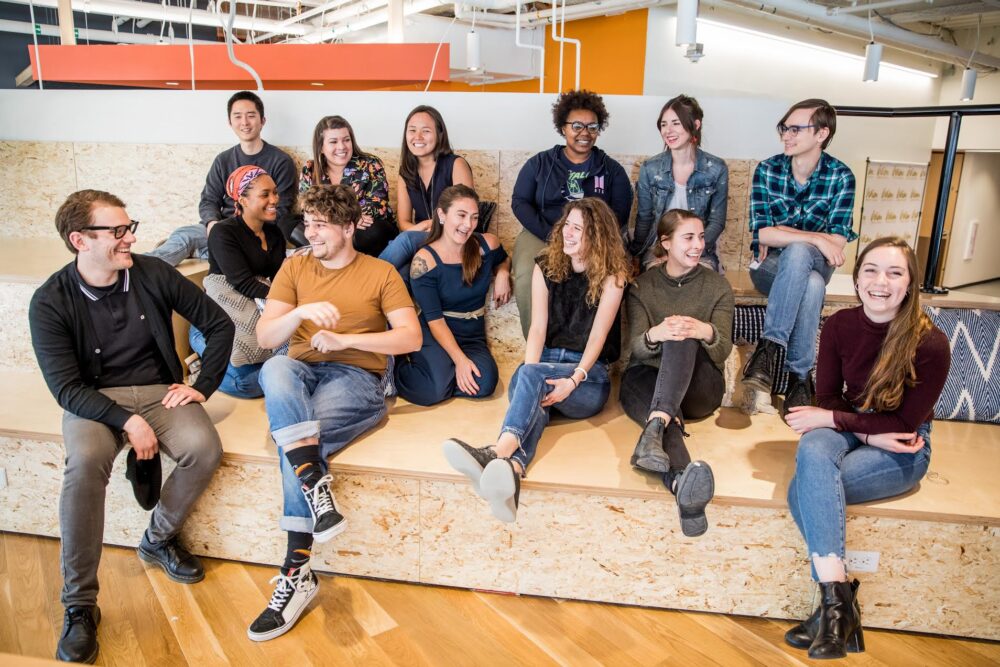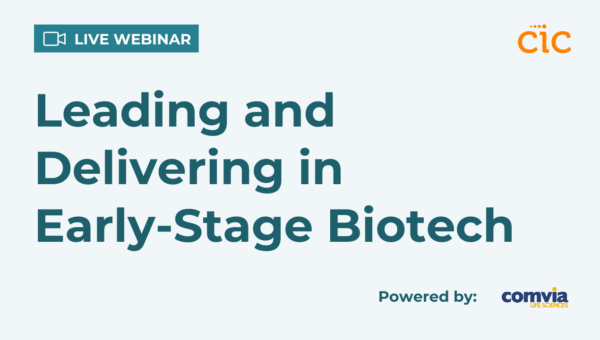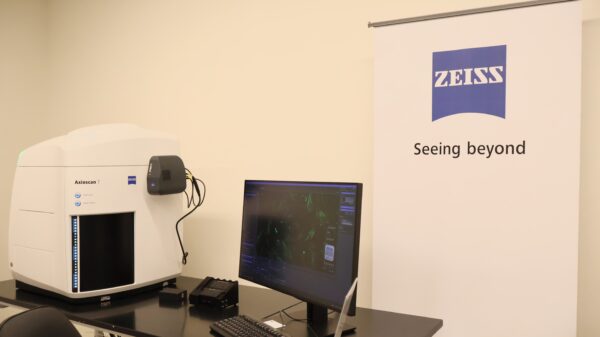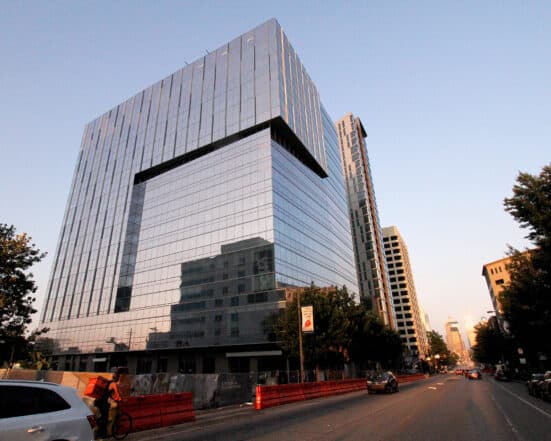Building Access to Entrepreneurship
An Interview with Sally Guzik, new Site Director of CIC Philadelphia
Before Sally J. Guzik was promoted to Site Director of CIC Philadelphia, she’d created and held a new position within the company: Senior Community Engagement Lead. Sally is passionate about creating opportunities and experiences for innovation communities to balance global and local priorities and perspectives through growth, strategic partnerships, and outreach programs. We sat down with Sally to discuss the state of entrepreneurship in Philadelphia, how infrastructure impacts collaboration, and what excites her most about her new job.
CIC: Congratulations on your promotion to site director of CIC Philly.
SG: Thank you. I’m very excited, particularly as I’m a native Pennsylvanian, so this is a bit of a homecoming.
CIC: So now that you’re the site director, what do you want to brag about at CIC Philly?
SG: That’s an easy one: our team. So much of what differentiates us is both our people and the size and breadth of our team. We have writers, designers, artists, scientists, musicians, techies, entrepreneurs, and even fashion stylists on staff. Much of their job is to make it easy for our clients to do the important work they come to CIC to do. This means that on any given day, you could find them introducing two clients whom they think will inspire each other, providing the type of support clients need to stay focused, such as making copies, or even setting up a massage for a client. Their depth of creativity, passion, and caring for our clients and our world continually inspires me.
CIC: You were CIC’s first employee in Philadelphia, right?
SG: Yes, I moved back to Pennsylvania from Miami, where I helped open CIC Miami, curated events to serve our clients and underserved entrepreneurs, and developed industry-specific, micro startup communities. I relocated here last spring, six months before we opened, to meet with governmental, business, and nonprofit leaders. I spent a lot of time listening to their concerns for the region and learning what excited them. It was clear CIC could play an important part in continuing to shape University City into “Cellacon Valley.”
CIC: Cellacon Valley?
SG: Yes, we see University City as the next innovation hub, and the numbers back us up. Between 2015 and 2018, lab space here doubled, venture capital increased more than three-fold, and NIH funding grew 1,000 percent. According to the latest CBRE report, last year venture capital funding for life sciences in Philadelphia surged to its highest level since 2007.
The CIC Philadelphia team. From left to right: Ian Griffner, Nathan Kim, Naima Passe, Emmett Cawley, Sally Guzik, Laurel Williams, Francesca Galarus, Abby Sherburne, Jasmine Jones, Ashley Baker, Stephanie Fenner, Leona Dougherty, Grace Powers
CIC: What do you see as CIC’s role in fostering additional growth?
SG: This is what we do: transform communities by creating thoughtfully designed spaces that spark important conversations, encourage collaboration, and attract investors. It starts with our building and is activated by the mix of entrepreneurs and investors we attract, as well as the programming and resources we provide.
When we launched on November 9, we added 23K square feet of lab space and 132K square feet of coworking space to West Philly. We’re already seeing our impact. Just last month Amicus Therapeutics, a global biotech focused on curing rare metabolic diseases, announced it was moving to Philadelphia and to BioLabs@CIC as they build out their new space in 3675 Market. Amicus speaks to the heart of our vision of fixing the world through innovation. Its founders’—the Crowleys—personal experience caring for two children with Pompe disease catalyzed them to start Amicus.
This is the type of entrepreneur we support—champions, advocates, and problem solvers taking on the world’s most challenging issues. Amicus was drawn to the flexibility of our space and the ability to be in the center of our vibrant ecosystem of scientists and entrepreneurs.
CIC: That’s exciting. What else are you excited about at CIC Philly?
SG: We’ve attracted significant interest from VC firms that chose to move into our space. On the day of our launch party, Backstage Capital, a national VC firm that invests in startup founders who identify as women, people of color, and/or LGBTQ, announced it had chosen CIC as the home for its Philadelphia accelerator.
CIC: Back to your first six months here. Transitioning to Philadelphia, what challenges did you hear about from local leaders and organizations?
SG: Like any big city, Philadelphia faces poverty, inequity, and a devastating opioid epidemic. At the center of these problems is the need for education, opportunity, and access. I heard over and over again about the lack of a talent pipeline. Various community organizations are working on this, but they’re not always connected with each other and often lack a place to convene and collaborate.
CIC: Can CIC really do anything about that?
SG: Yes. One thing that differentiates us from other shared space models is that we view our community as what we build inside our space and outside of it. When we move into a community, we commit to sharing our unique resources to help solve our new neighbors’ issues, working together. I am passionate about creating opportunities and experiences for our innovation community to act locally. We’ve developed partnerships with our neighbors by simply asking, “How can we help?”
CIC: Can you give me an example of what this means?
SG: Sure. A perfect example is our Social Impact Cohort, which is a first for CIC. We’ve partnered with a select group of innovative local nonprofits, hand-chosen because their mission aligns with ours and with the development of a talent pipeline. We accelerate their impact by providing pro bono space, resources, and networking opportunities. They enjoy full access to all of our amenities. By engaging fully with our space and clients, they—and the students they serve—become integrated into our entrepreneurial ecosystem.
Beyond what we can accomplish through our Social Impact Cohort, we have the power to support an infinite number of community organizations through the events and programs in Quorum, located with us in 3675 Market Street.
CIC: I understand you are a first-generation college graduate. That is a huge accomplishment. Does that impact your vision for CIC?
SG: Thank you. It does. I am intimately aware of the insecurities and risks of going to college and out into the workforce without a safety net. I am also keenly aware of the importance of diversity, equity, and inclusion in the workplace. This understanding has helped me to purposefully create a culture here that attracts and supports companies like Backstage Accelerator, Network for Teaching Entrepreneurship, Coded by Kids, Collective Success, Open Access Philly, and Stimulus, which care deeply about these values.
CIC: So, what’s next for you, Sally?
SG: Well, today I’m off to SXSW, where I am joining other Philadelphia leaders—their word, not mine—in a discussion about Unique Spaces and Unique Communities in Philadelphia. If you’re in Austin, stop by the AmplifyPhilly House where over 400 Philadelphians will be convening to talk about our collaborative work this past year.






